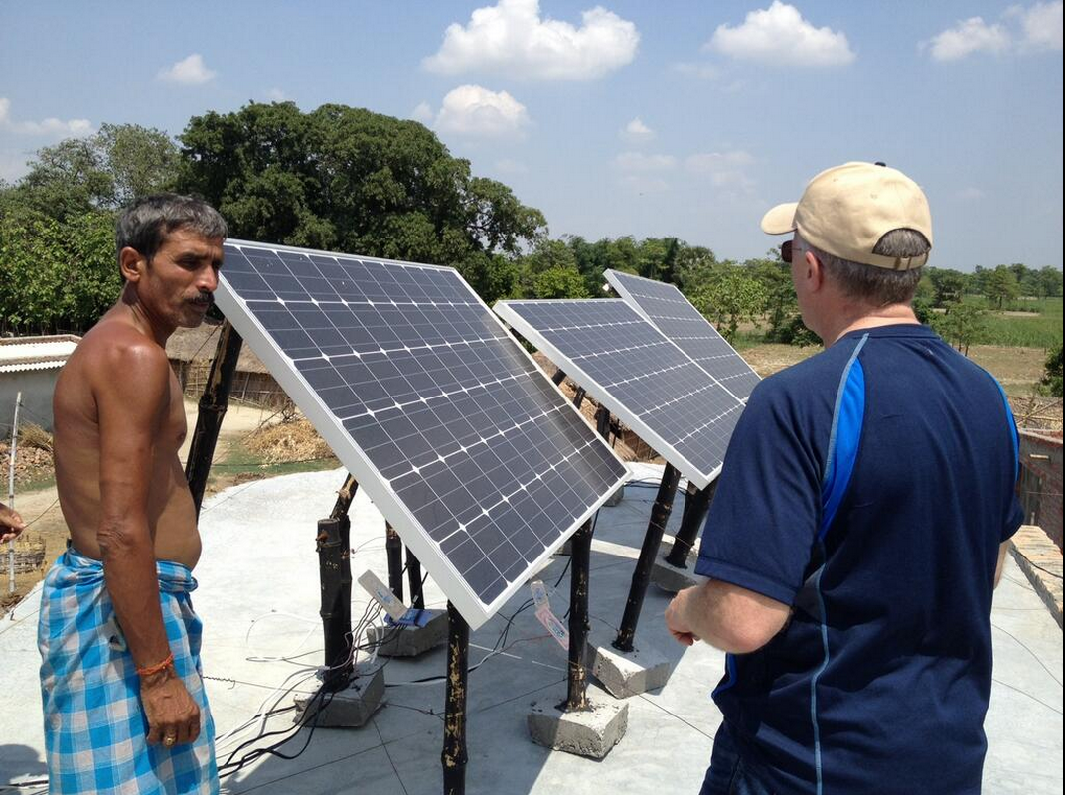To achieve its goals of 175 GW of renewable energy by 2022, the World Resources Institute (WRI) has said 330,000 new jobs need to be created. The report, Can Renewable Energy Jobs Help Reduce Poverty in India?, also recommends steps government, private companies and civil society can take to maximize their impact on poverty reduction.
In answer to its question, the report finds that many of the potential jobs will reduce poverty, provide healthcare and build opportunities for skilled and semi-skilled labors. The key findings state that the majority of jobs are currently contractual and, thus, do not offer stability. Permanent jobs can reduce poverty, but a strong foundation of such jobs is needed.
There is a barrier to poorer citizens entering skill training workshops and the subsequent job market. There are some exitsting programs, which include capacity building, poverty eradication, development of ownership opportunities and inclusion of women. However, absence of data makes it difficult to evaluate connections between renewable energy jobs and poverty reduction.
The research has recommended steps that government, private companies and civil society can take to maximize impact on poverty reduction, such as focusing on capacity building and training of the poor in O&M services, and focusing on training women.
WRI further recommends strengthening the links between training institutes and renewable energy enterprises, and creating a poverty impact assessment to evaluate if poverty is being reduced. The institut suggests a platform to collect data, which will include types of jobs, who is being employed and socioeconomic status. Finally, it says surveys should be conducted to study the impact of jobs in the renewable sector for poverty eradication.
India launched a massive renewable energy mission in 2014. The goal was established to provide electricity in rural areas and subsequently create jobs to reduce poverty. The government has set a target of achieving 175 GW of renewable energy by 2022. It has also recently rolled out the Saubhagya (Power to All) scheme to supply electricity to all the citizens.
This content is protected by copyright and may not be reused. If you want to cooperate with us and would like to reuse some of our content, please contact: editors@pv-magazine.com.








By submitting this form you agree to pv magazine using your data for the purposes of publishing your comment.
Your personal data will only be disclosed or otherwise transmitted to third parties for the purposes of spam filtering or if this is necessary for technical maintenance of the website. Any other transfer to third parties will not take place unless this is justified on the basis of applicable data protection regulations or if pv magazine is legally obliged to do so.
You may revoke this consent at any time with effect for the future, in which case your personal data will be deleted immediately. Otherwise, your data will be deleted if pv magazine has processed your request or the purpose of data storage is fulfilled.
Further information on data privacy can be found in our Data Protection Policy.